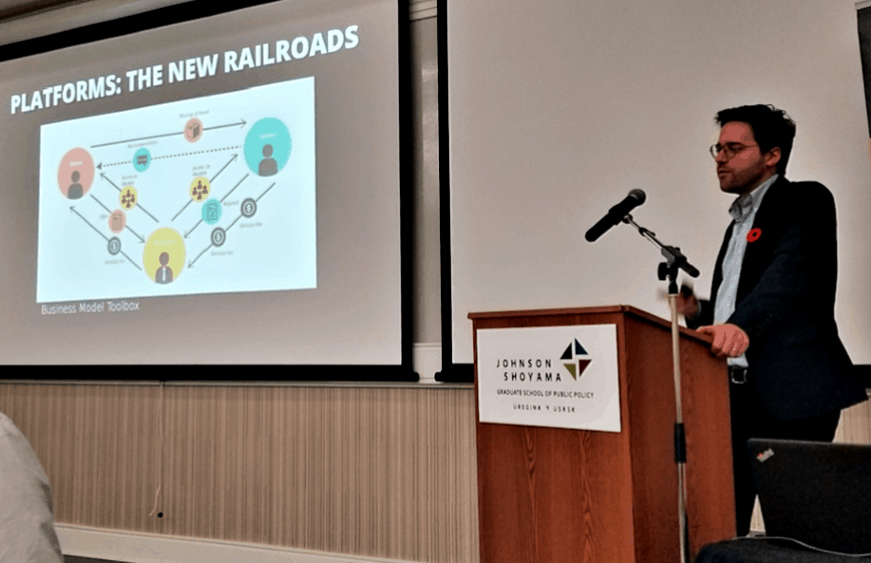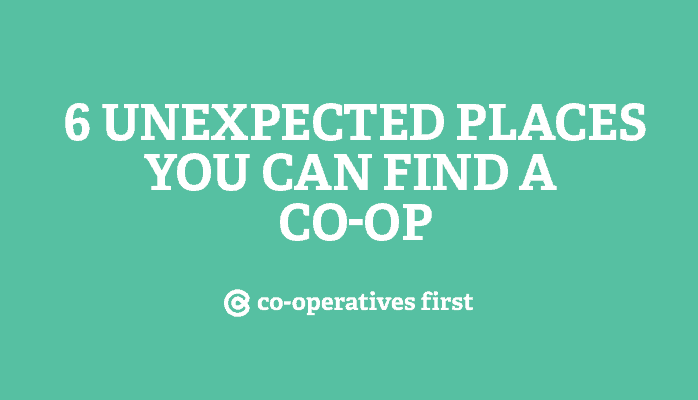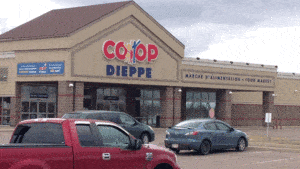Most people know grocery stores can be co-operatives. Some may have heard of daycare or housing co-ops. But the reality is the co-op model can be used to create a business in any sector of the economy. If the goal of the business is clear, and those involved have a desire to share decision making power, the kind of product or service the co-op provides doesn’t matter at all — so there are some pretty unexpected co-ops out there.
To prove this point, let’s take a look at some co-ops in unexpected sectors of the economy. (Even co-op pros might be surprised to hear that some of these co-operatives exist.)
Data co-ops
Thanks to widespread adoption of online technology, we create unbelievable amounts of data every day. Increasingly, the co-operative model is being used to harness data to the benefit (and security) of those who create it. In his 2018 MacPherson Talk about platform co-operatives, author and professor Nathan Schneider spoke about the co-op model’s ability to capture and use data productively, to the benefit of its creators. He used examples of unexpected co-ops from both the agricultural sector and the healthcare sector.
“We see a new generation of development in agriculture where co-operatives have traditionally been strong,” said Schneider, “where farmers start realizing ‘hey, something’s happening with all that data that our new tractors are putting out, who’s going to be in control of that?’…What would it look like to ensure that the next generation of farmer technologies are also under the control of the farmers themselves, where producers continue to be in charge of their access to market and the technology they need to do their business in a competitive market?”

Nathan Schneider spoke recently at the Centre for the Study of Co-operatives.
A good example of this is the Grower Information Services Co-operative. This producer-owned organization focuses on agricultural technology and data storage and puts that data to work for its members.
In the healthcare field, the Midata co-op based in Switzerland gives users a place to host all their health-related data. Moreover, it allows them to share this information only with the people they choose. Likewise, Savvy Cooperative, owned by patients, was created to “bridge the gap between patients and practitioners.” The platform allows members to get paid for contributing their insights and information to the medical professionals who use them.
Music streaming
Another platform co-op Schneider mentioned was Resonate, a music streaming service (ie. a co-operative alternative to Spotify). Resonate is a multi-stakeholder co-op with three different share classes: musicians, listeners, and staff/volunteers.
Resonate’s mission is to ensure artists are paid fairly for their work. Since streaming music (rather than paying to own it) has become popular, independent musicians have seen a drop in the money they receive for the music the produce. Rather than having users pay a monthly subscription fee to access all of its music, Resonate’s “stream-to-own” model charges a small amount each time you listen to a song. After a user has listened to a song 9 times, they own it — and musicians get a bigger cut than they would selling their material through other means.
Library services
Some co-ops have members that are libraries. These co-ops deliver resources and services in a way that is cost-effective and efficient. For example, the BC Libraries Co-operative provides Information Technology (IT) infrastructure for its member libraries. The co-op builds and hosts websites, expands libraries’ access to fibre optic networks, provides licencing for ebooks, databases and apps, and provides online space for library workers to share resources.
Similarly, the Simcoe County Library Co-operative in Ontario offers access to online databases and special collections, wifi services, as well as a delivery van to its members. The Library Network in Michigan services 75 libraries in its region. These services include acquisitions, cataloging, circulation control, delivery services, and purchasing. All these co-ops help ensure public libraries can stay up-to-date in a more cost-effective way.
Student loans
As a regular follower of this blog, you probably already know credit unions are co-operative financial institutions. There are also some really cool investment co-ops in places like BC and Alberta. But Salish Sea Cooperative Finance in Washington state is a bit different. This unique financial co-op offers an ethical investment opportunity for those who can afford it, provides students with a less onerous way to pay off student loans, and increases the financial literacy of the students who benefit from a low-interest loan.
In the US, student loan debt has reached crisis levels: more than 44 million borrowers collectively owe $1.5 trillion in student loans, with some individuals owing tens or hundreds of thousands of dollars.
The Salish Sea co-op uses money from its investor members to purchase individual student loans, and lower the interest required to pay them back. Some members also volunteer, mentor, donate, and co-sign loans for students, all in an effort to lessen the burden of debt for those who participate. This allows students not only to pay off their debt faster but also become more financially literate in the process.
Golf Ball Divers
Interesting fact: when you hit your golf ball into a water hazard, you might be contributing to a co-op. Yep, people make a living diving for and re-selling golf balls at courses across the continent. And it’s big business: the largest company in this industry sells over 50 million balls a year.
Golf ball divers have historically been independent contractors, but – like independent businesses in many other sectors – decided there were advantages to working together. So, they formed The Golf Ball Divers Alliance, a producer co-op, to market and distribute their wares. It seems there really is no limit to how this versatile business model can be leveraged.
Know some interesting or unexpected co-ops? Tell us about it!





